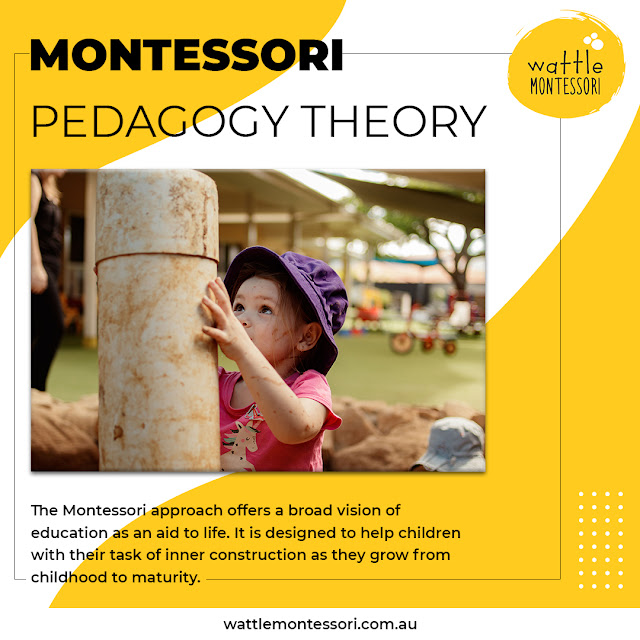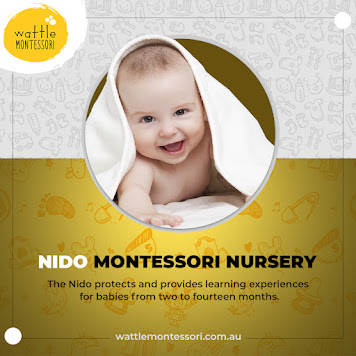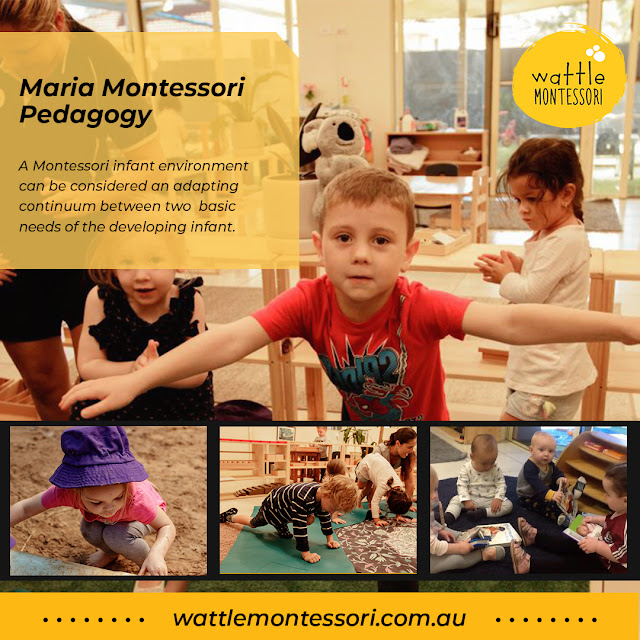Empower, Educate and Advance your children for a finer tomorrow - Wattle montessori
Every child is unique; every child is special with their own abilities. In this respect it is very essential that we pay special attention to the child’s social, psychological, behavioral and entire developmental process. The entire communicable process as discussed is a very notable aspect of Montessori system of education for children.
Montessori Pedagogy
In Montessori Pedagogy, the educators pay special attention to children activity and
collective play. The educators follow a
few rules in the pedagogy. They are:
1)
The Montessori teacher needs to treat the
children as pupils and not as students. The work of a Montessori educator is to
bring out the dormant qualities of the child.
2)
The teachers keep the class clean and filled
with colorful learning toys, games, stationery items. The teacher engages in
reading out stories, singing, arranging games, play and activities like singing
and dancing. The activities enable to teacher to study the behavior, planning
and problem solving capacity of the child.
3)
The teacher will remain connected to every child
but never come in the way of their individual communication. This is also a
method of teaching values to the child without their notice.
Maria Montessori
Pedagogy
The entire foundation and credit of the Montessori system of
education goes to Maria Montessori (1870-1952). The Maria Montessori Pedagogy patterns supports the development of
children from birth to middle school through the following divisions:
1)
Infant/Toddler – (For children aged 0-3 years).
The teachers help to develop trust, confidence, motor skills, language skills
and independence gain to do everyday tasks in children.
2)
Primary/Children’s House /CASA– (For children
aged 3-6 years). The teachers help to develop self-regulation, clear
communication, basic literacy and mathematics and imaginative exploration.
3)
Elementary – (For Children from 6 to 12 years).The
teachers help to develop intellectual pursuits, community behavior and
cultural interests.
4)
Adolescence /Erkinder/Farm Schools - (For
children from 12 to 15 years). The teachers play an important role to develop
administrative sense, economic sense and interpersonal referencing.
Montessori Pedagogy
Theory
The Montessori system of education is also based on a philosophy
and theory. The outlines of Montessori Pedagogy theory include some basic points. They are:
1)
Respect for the child – Even the children has
the freedom of expression and to make choices.
2)
The Absorbent Mind – The children not only
imitate but collect even the minute information around them.
3)
Sensitive period – Every child has some unique
ability. They use this ability to develop skills.
4)
The prepared environment – The class room is a
learning environment and not a prison. The children should be allowed maximum
activity to face the outside world.
5)
Auto education – The Montessori education
enables the child to develop on its own. The teachers are their guides.
Thus, if any adult finds any deviation of the child from the
above mentioned development process, like the child not interacting, the child
becoming violent and so on, immediate attention and specialist help needs to be
given.




Comments
Post a Comment